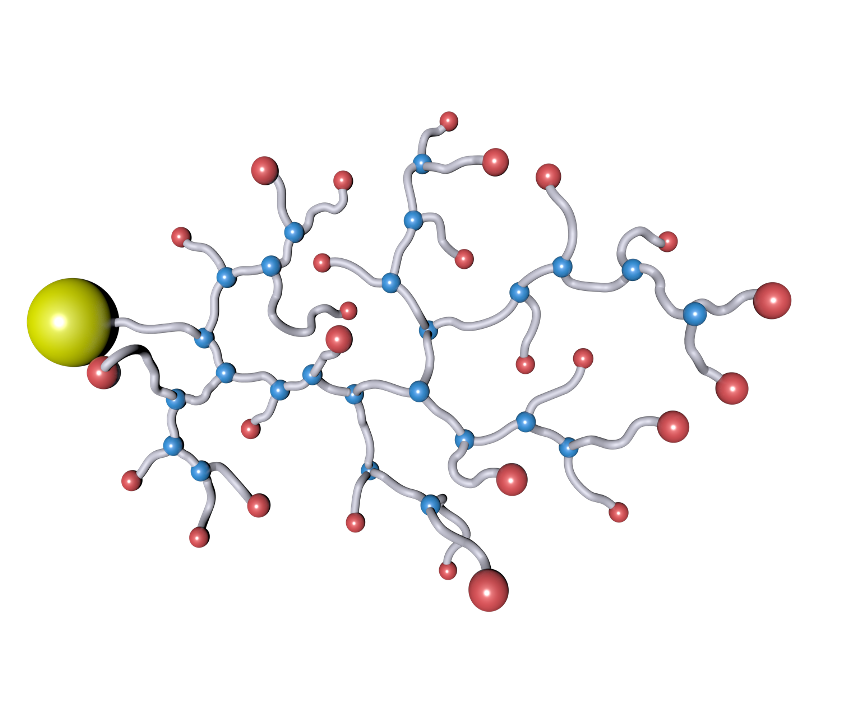Polymers in Health Care: Improving Clinical Instruments and Treatments
Polymers in Health Care: Improving Clinical Instruments and Treatments
Blog Article
Checking Out the Varied Applications and Advantages of Polymers in Different Industries
Polymers, with their diverse series of residential or commercial properties and capabilities, have actually become indispensable in various industries, each reaping distinct gain from their application. Polymers. From enhancing safety and security and performance in the automobile sector to reinventing clinical devices in the medical care market, polymers play an essential function. Moreover, their eco-friendly nature is altering the landscape of sustainability practices. As we dig into the midsts of polymers in electronic devices, we uncover innovative developments, while their architectural integrity transforms the realm of construction and infrastructure. The pervasive impact of polymers throughout sectors is a testament to their adaptability and adaptability, forming the future of countless sectors.
Automotive Market Applications
Polymers play a critical role in enhancing the efficiency and resilience of different components within the vehicle industry. One noticeable usage of polymers in the auto market is in the production of lightweight parts.

Health Care Sector Benefits
In different medical care applications, the benefits of making use of polymers are widely identified for their diverse range of beneficial homes. Polymers play a critical duty in the health care sector as a result of their adaptability, biocompatibility, and cost-effectiveness. Among the key advantages of polymers in health care is their capacity to be tailored to certain needs, such as adaptability, durability, and biodegradability, making them optimal for a vast array of medical applications.
Polymer-based materials are extensively made use of in medical devices, such as catheters, implants, prosthetics, and medicine shipment systems, due to their biocompatibility and capacity to mimic all-natural cells. These products can reduce the danger of allergies or rejections, improving person safety and security and outcomes. Furthermore, polymers are light-weight, making them appropriate for wearable medical tools and ensuring patient comfort.
Furthermore, polymers allow the growth of ingenious treatment approaches, such as hydrogels for cells design and nanocomposites for targeted drug shipment. Their convenience of processing and sanitation makes them necessary for keeping high requirements of hygiene in health care settings. Generally, the varied benefits of polymers add dramatically to innovations in clinical innovation and patient treatment.
Environmental Benefits of Polymers

Moreover, polymers can add to energy financial savings as a result of their lightweight nature. In sectors such as transportation, light-weight polymer products can help in reducing gas usage and greenhouse gas emissions. Additionally, polymers can make it possible for the development of energy-efficient items such as insulation products that improve energy conservation in structures.
Additionally, polymers play a critical role in reducing water contamination. For instance, using polymer-based purification systems can efficiently remove contaminants and impurities from wastewater, protecting water resources and ecosystems. In general, the ecological advantages of polymers make them valuable properties in promoting sustainability and environmentally friendly practices across various industries.
Polymers in Electronic Devices and Technology
Taking into consideration the raising need for cutting-edge and sustainable remedies in contemporary industries, the assimilation of advanced polymer technologies in the realm of electronics and modern technology has actually arised as a pivotal approach for driving effectiveness and efficiency. Polymers have revolutionized the electronics market by allowing the manufacturing of lighter, much more adaptable, and durable digital tools. From mobile phones to clinical devices, polymers play an important duty in boosting item style see this page and capability.
One considerable benefit of polymers in electronics is their protecting homes, which help protect fragile electronic elements from environmental aspects and electric disturbance. Additionally, polymers are essential in the development of flexible displays, wearable innovation, and printed electronic devices, providing limitless opportunities for producing wise and interconnected devices.
Moreover, using polymers in digital product packaging has actually caused advancements in miniaturization and thermal monitoring, boosting the general efficiency and reliability of digital systems. As innovation continues to develop, the versatility and flexibility of polymers will undoubtedly drive further technology in the electronic devices industry, shaping the future of innovation.
Role of Polymers in Building and Infrastructure
The assimilation of innovative polymer materials in construction and infrastructure tasks has actually changed the means frameworks are designed and constructed in modern times. Polymers offer various benefits in the building and construction market as a result of their versatility, toughness, and cost-effectiveness. One key role of polymers in construction is their use in layers and sealers, providing defense against environmental variables such as wetness, UV radiation, and rust. Additionally, polymers are utilized in the manufacturing of light-weight and high-strength composite products, boosting the structural integrity of structures while minimizing overall weight.
In addition, polymers play an essential role in sustainable construction methods by enabling the growth of energy-efficient frameworks. Shielding products made from polymers aid manage interior temperature levels, lowering the demand for heating and cooling systems and eventually decreasing power intake - Polymers.
Final Thought
In final thought, polymers play a vital duty in numerous sectors such as automotive, medical care, environmental, electronic devices, and building and construction. From boosting fuel effectiveness in vehicles to boosting clinical tools, polymers offer many advantages.
Report this page